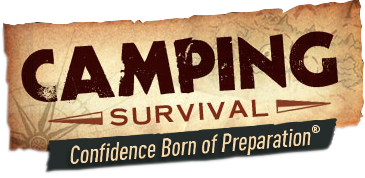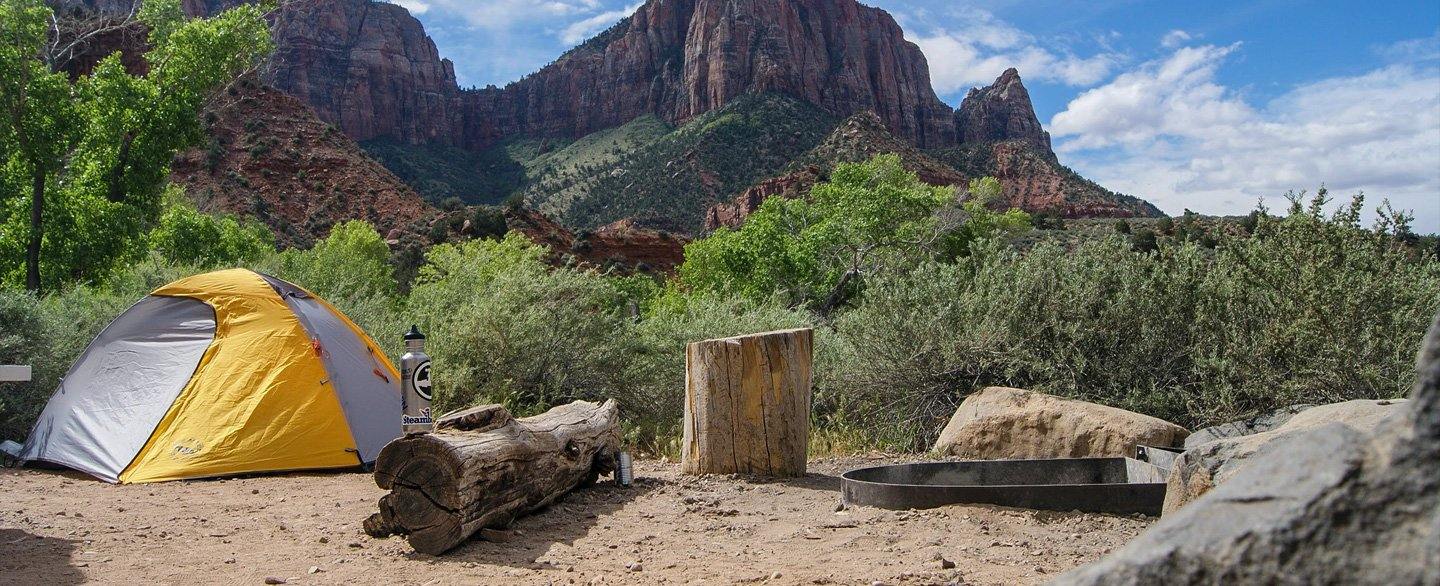Choosing a campsite can be daunting, and we would like to make it easier for you. When looking at your site, following these 5 “W’s” can be a great help.
1.Wood
While camping, having a campfire can be the difference between life and death. Fueling the fire is essential, so choosing an area that has ample amounts of wood suitable for starting and sustaining a fire is important. When looking for wood to start a fire you must first find wood that is small, typically the size of a toothpick to the size of a number 2 pencil. Small wood like this is going to dry and burn more quickly giving the fire the heat it needs to grow.
Finding items that you can start a fire with is essential as well. Birch bark, dry pine needles, even leaves that are dry are great to start fires. Loading up on these items and having more laying around in case anything happens to your supply is important. Having fire-starting and even fire-sustaining items in your go bag is something you should investigate. There are many items that are waterproof and easy to store, some you can find here.
Once sustaining the fire, the next step is to locate larger pieces of wood. Try finding some that will burn overnight, because staying up all night to put sticks on the fire is never pleasant. Make sure you have enough wood nearby and stacked up so that you don't have to forage in the middle of the night. Having a small axe in your camping pack will help in chopping up dead trees into manageable logs you can use to keep yourself warm and to cook.

- Water
A human can survive just over a week without water, but only under ideal circumstances. If you are physically exerting yourself, however this number drops considerably. For that reason, in any outdoor situation, one of the first and most important things to sort out is finding clean drinking water.
When thinking about where to set up your tent, you should keep in mind that anything near water will not be a safe area. If a storm moves in, the water could force you to move camp to a better location. Keep this in mind when pitching your tent, and make sure you are on higher ground away from water; enough to make sure you will not be flooded if anything happens, but close enough to get to the water when you need to wash dishes or use it for cooking.
- Wind/Weather
Depending on where you are, weather can be a critical factor in survival. Storms or inhospitable temperatures demand immediate attention. Be mindful of what might be coming your way and plan accordingly. For example, windy, wet climates require you to build a shelter or set up your tent sooner rather than later. As Princeton University’s Outdoor Action reported, getting your clothes or equipment wet can exacerbate your risk of hypothermia.
On a hot day, a cool breeze is very refreshing. Early morning breezes can also bring freshness to your tents and campsites.

Strong winds, however, can turn a good camping experience into a bad one. Ever try to set up a tent or tarp with hard winds blowing? Have you ever put a stake into the ground only to have it uprooted by the wind? Strong winds are also a problem when trying to start and contain a fire. You don’t need the wind blowing sparks throughout your campsite. For these reasons, you’ll want to have some sort of shelter (a large rock or a line of trees) to protect you from stormy winds.
- Widowmakers
As you set up your camp, you need to look out for widowmakers. A widowmaker is any naturally occurring event that could cause injury. Avoid settling in alongside a riverbank that could flood or underneath a tree full of dead branches that could fall without warning. Same goes for setting up under rock ledges that could become unstable. This is the most dangerous of the 5 W’s so pay attention to possible hazards before setting up camp.
Make sure you are mindful of where and how you set up your camp. Sometimes widowmakers cannot be planned for, but sometimes it is just a matter of looking around, being aware of your environment, and planning for anything that could occur. Do not pitch your tent under trees that look dead nor dying or place it on the edge of a fast-moving river. Be mindful of everything around you and prepare for anything that could happen.
- Wild things
Wild things can be different depending on where you live. Some of us must worry about mountain lions, while others are concerned with snakes and mosquitos. Be mindful of the area that you are in and what dangers you may be facing by camping where you are.
Another thing to be mindful of is the time of year you are camping. The most dangerous season for some animals is spring when they are mating. Other areas need to worry about fall, when bears are eating enough to be able to hibernate for the winter.

Pack bear spray, mosquito repellant, candles to deter gnats and ticks, and anything else you would need to make for a nice camping trip for yourself and your family.
Food will need to be protected, as most areas have raccoons, others have bears, and both love to scavenge for food. Making sure you do not have to worry about your food being stolen will make for a much nicer trip.


3 comments
While “Wood” may be important for survival, it is not required for camping. I think the 5th W would be Walkway. Camping in the middle of a trail should be avoided.
Thanks for being a consistently reliable resource. We enjoy the articles. Keep them coming.
i LOVE YOUR STUFF, THE IMFORMATION IS REALLY GREAT AND I’M ALWAYS PASSING IT FORWARD. THANK YOU